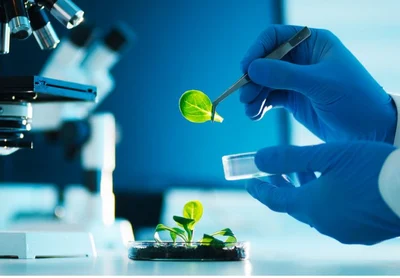Gene technology law sparks debate

The Government's announced end to the ban on gene technology outside the lab continues to draw a mixed reaction from primary industry organisations and farmers alike.
The new law will be based on Australia's Gene Technology Act and will be adjusted to meet New Zealand's needs.
Like Australia, a regulatory agency will be established to support scientific advancement while protecting human health and the environment.
An independent farmer survey, commissioned by Beef + Lamb New Zealand in response to the proposed changes, revealed a "wide range of farmer opinions and a need for more information about gene technology and exactly what the potential regulatory changes could mean for them."
The survey found that most farmers don't fully understand gene editing in food production.
Despite that, over half of the farmers surveyed in New Zealand support its use, with a cautious case-by-case approach.
Asia, Africa and Australia farmers and horticulturalists have been growing genetically modified crops with pest and disease resistance for up to two decades.
But in New Zealand the practice is tightly controlled by the Hazardous Substances and New Organisms Act, which aside from some amendments, dates back to 1996.
Farmers who were surveyed expressed concerns about how the technology could impact consumer demand in major markets.
But they also supported the technology's potential to enhance animal welfare, especially in managing issues like internal parasites, facial eczema, and pests like fly-strike.
Federated Farmers have welcomed the changes to gene editing legislation, describing it as a "positive step''.
"Farmers are always looking for new technologies to help them improve their production, increase their profit, or reduce their environmental footprint," Federated Farmers' president Wayne Langford said.
"There are huge opportunities to help us reduce our greenhouse gas emissions, improve drought resilience, or increase our farm production using these technologies."
Langford said there were also potential conservation benefits, like eradicating possums that are spreading disease and decimating our native forests, and benefits for healthcare.
"These aren't just imaginary concepts - they're real possibilities.
"Of course, there will always be risks and trade-offs that need to be carefully considered, too, like how our international consumers would feel about such a change."
The organisation's arable chairperson, David Birkett, said New Zealand can produce both genetically engineered (GE) and non-GE products and market those products for export accordingly.
"There is a perception that when you bring GE into the country, the whole country is GE.
"That's not the case.
"It's up to us to make sure we clearly say to our global markets that we can identify GE and non-GE components."
Birkett said that Australia has proven that both GE and non-GE products can be produced and marketed successfully and simultaneously.
"The new regulations will be based on Australia, and Australia has had GE for twenty years.
"There are only about four crops that are GE in Australia, and Australia is one of the biggest producers of organic products in the world.
"So, to me, that demonstrates the ability to have both."
By Claire Inkson
